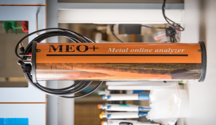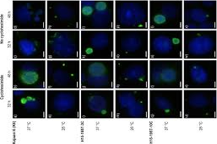The Commercialization Process of High Technologies: Case Studies from ICT, Cleanteach and Life Sciences Industries
Gbadegeshin, S. A.
BookJournal Paper
About The Publication
Commercialization of high technologies refers to a process that transforms radical and disruptive innovations into consumable products, services and solution packages. This process generates returns on research and development investments, employs highly educated people, empowers semi-skilled persons and makes business enterprises prosperous and sustainable. Hence, this study investigated the commercialization process purposely to provide in-depth knowledge of it. The study aimed to investigate how high technologies are commercialized, especially in ICT, Cleantech and the Life Sciences industries to provide a better understanding of the commercialization process. This understanding is essential due to the increase in new high technologies and rapid changes in these industries.
The study employed a case study research method to achieve its goal. It used interviews, an online survey, observations and documentary for data collection, and content and thematic methods for data analysis. It used primary and secondary data that were collected between 2012 and 2017. Its participants represented stakeholders of the above-mentioned industries. The participants mostly came from Finland, but some came from other European countries.
The study found that the commercialization process models are rooted in the Technology Acceptance Model (TAM), Unified Theory of Acceptance and Use of Technology (UTAUT), Stage-gate, Effectuation, Bricolage and Lean Start-up theoretical frameworks. Similarly, it found that the process makes use of a mixture of linear and non-linear logic. Additionally, it found that the commercialization process starts during the pre-innovation phase and continues after the innovation’s marketing phase, and that commercialization activities must be performed in parallel (simultaneously). Most interestingly, the study revealed that digitalization has changes on the commercialization process.
Based on the findings, the study proposed a new model for commercializing high technologies in the above-mentioned industries; a framework termed the “Integrative Commercialization Process” (ICP). The model was built on theories, theoretical frameworks and models of the innovation process, New Product Development (NPD), Entrepreneurship, Spinoff, Transfer of Technology (TOT) and Marketing. Similarly, the model was built on the context of ICT, Cleantech and the Life Sciences. Hence, the study offered insights into the theoretical frameworks of the innovation, the NPD, Spinoff and marketing fields. Furthermore, the study provided practical insight for the stakeholders of the aforementioned industries, especially potential entrepreneurs (e.g., scientists and engineers), technology entrepreneurs, entrepreneurship educators, commercialization practitioners, universities and research institutes and companies. Therefore, this study makes contributions to the theory and practice of commercialization.





